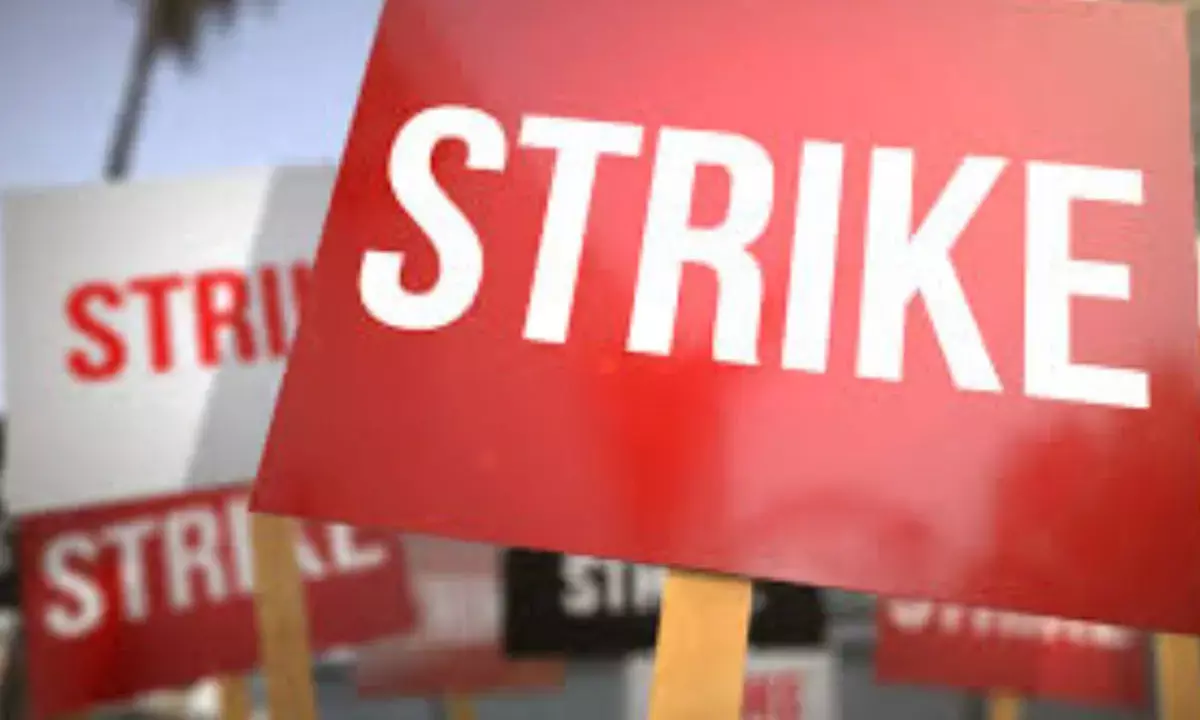Examining effects of workers’ strike on Nigeria’s economy
Labour unions all over the world use strike as the most overt expression of industrial conflict, but it has far-reaching implications on the economy.;

On June 3, the two major labour unions in Nigeria, the Nigeria Labour Congress (NLC), and the Trade Union Congress (TUC) called out other affiliate unions on an indefinite strike.
This was due to break down in negotiations for a new minimum wage for Nigerian workers between the unions and the Federal Government to cushion effect of the present economic realities occasioned by certain government policies.
The President of the NLC, Joe Ajaero, had announced that the strike followed failed negotiations between the government and organised labour.
Labour unions all over the world use strike as the most overt expression of industrial conflict, but it has far-reaching implications on the economy.
Experts are of the opinion that though industrial conflict is inevitable, strike can be avoided with good industrial relations.
During the last industrial action which, was suspended after three days, the national electricity grid was shut down, plunging the entire nation in darkness, while airline operations were disrupted across the nation.
Strike actions are a recurring feature in Nigeria, frequently used as a means of civil resistance and public expression.
These strikes have been accompanied by adverse economic consequences, including work stoppages, surging inflation rates, and sluggish overall economic growth.
According to a financial analyst, Aminu Abdulkadri, associated financial burdens are substantial, encompassing costs related to lost workdays, stalled infrastructure projects, and delayed service delivery, often amounting to huge financial losses.
“Rising inflation erodes consumer purchasing power leading to a contraction in aggregate demand as households and businesses grapple with reduced disposable income.
“The added pressure of a strike action can only worsen situation,” he said.
An economist, Peter Ogunmefu, said that the consistent spectre of strikes could deter foreign investment and erode investor confidence.
According to him, it can affect Foreign Direct Investments (FDIs), contribute to capital flight, and negatively affect foreign exchange earnings.
“Cultivating a more stable industrial relations is important for attracting investment, fostering sustainable economic growth and improving the overall economic well-being of Nigeria’s populace,” he said.
The Director-General of the Manufacturers Association of Nigeria, Segun Ajayi-Kadir, said that strikes usually constrained productivity.
“This means that we will not be able to run the hours of production that we used to run and this will lead to reduced capacity utilisation.
“During the period when we are not able to meet our production target, it means that the product that will be available for us to sell will be much lower and we are going to have a reduction in the number of manpower.
“It will lead to government’s reduced revenue and the trickle-down effect of that is that what a well-functional manufacturing process would have delivered to the economy will be lost,’’ he said.
Also, the National Vice President of the Nigerian Association of Small-Scale Industrialists, Segun Kuti-George, said that strikes by the labour unions would usually put economic activities at a standstill, adding that every strike has consequences.
Kuti-George said that micro, small and medium enterprises being private usually do not go on strike.
“But if the people that serve them like the raw material suppliers, logistics people and all that are on strike, then certainly it is going to affect them,” he said.
An economist, Olorunfemi Idris, said that strikes could lead to reduced production, lost revenue, increased costs, damaged reputation, and social unrest, ultimately resulting in significant economic losses.
According to him, the impact of strikes on the economy cannot be overstated.
“A strike by oil workers for example, can lead to a decrease in oil production, resulting in lost government revenue and foreign exchange earnings.
“This can have a ripple effect on other industries and ultimately negatively impact the overall economy,” he said.
Idris said that the cost of a one-day strike in Nigeria can be as high as 100 million dollars.
He cited a study by the Nigerian Economic Summit Group (NESG), which estimated that the 2018 strike by the Academic Staff Union of Universities (ASUU) cost the economy 1.5 billion dollars.
“Strikes can also have long-term effects, such as declined investment and productivity in key sectors like oil, which can further worsen the economic impact,” he said.
As the nation comes to terms with the realities of the negative economic impact of industrial actions, Nigerians are urging the government, the labour unions and other stakeholders to prioritise dialogue and negotiation to avoid strikes and mitigate their effects on the economy.
Experts in key sectors of the economy have also cautioned that the nation risk losing N50 billion daily to strikes.
They said that apart from compounding the nation’s economic problems, strikes would create fear and send wrong signals to foreign investors.

